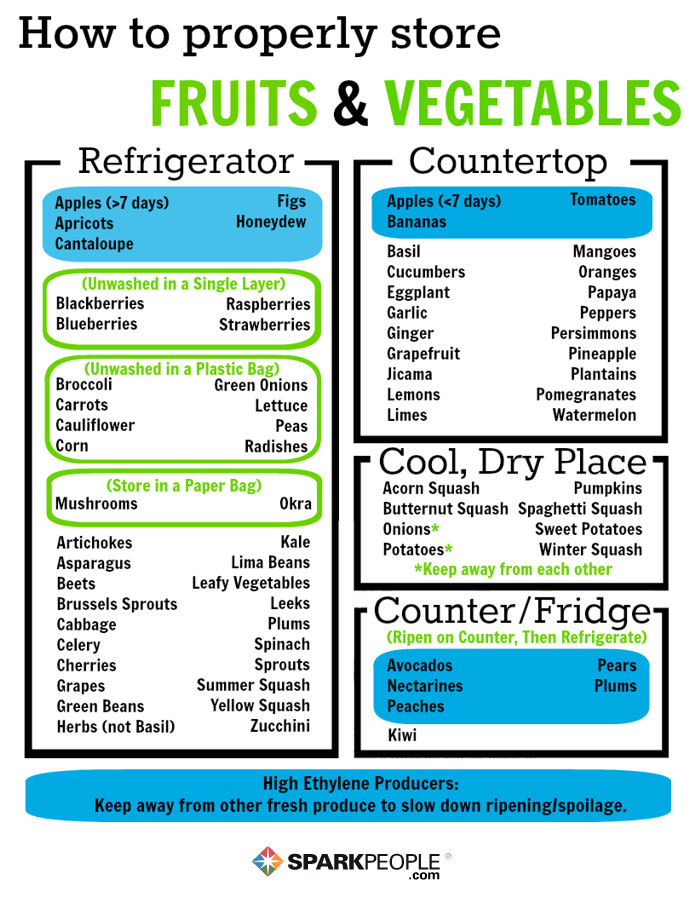Eating more fruits and vegetables is a requirement for every healthy eater. But when you buy more fresh produce, do you end up throwing away more than you eat? You're not alone.
According to the Natural Resources Defense Council, the average American family of four throws out approximately 25 percent of the food and beverages they buy--amounting to $1,365 to $2,275 annually.
Storing fresh produce is a little more complicated than you might think. If you want to prevent spoilage, certain foods shouldn't be stored together at all, while others that we commonly keep in the fridge should actually be left on the countertop. To keep your produce optimally fresh (and cut down on food waste), use this handy guide.
Countertop Storage Tips
There’s nothing as inviting as a big bowl of crisp apples on the kitchen counter. To keep those apples crisp and all countertop-stored produce fresh, store them out of direct sunlight, either directly on the countertop, in an uncovered bowl, or inside a perforated plastic bag.
Refrigerator Storage Tips
For produce that is best stored in the refrigerator, remember the following guidelines.
- Keep produce in perforated plastic bags in the produce drawer of the refrigerator. (To perforate bags, punch holes in the bag with a sharp object, spacing them about as far apart as the holes you see in supermarket apple bags.)
- Keep fruits and vegetables separate, in different drawers, because ethylene can build up in the fridge, causing spoilage.
- When storing herbs (and interestingly, asparagus, too), snip off the ends, store upright in a glass of water (like flowers in a vase) and cover with a plastic bag.
What to Store Where: A Handy Chart

*More about Ethylene: Fruits and vegetables give off an odorless, harmless and tasteless gas called ethylene after they're picked. All fruits and vegetables produce it, but some foods produce it in greater quantities. When ethylene-producing foods are kept in close proximity with ethylene-sensitive foods, especially in a confined space (like a bag or drawer), the gas will speed up the ripening process of the other produce. Use this to your advantage if you want to speed up the ripening process of an unripe fruit, for example, by putting an apple in a bag with an unripe avocado. But if you want your already-ripe foods to last longer, remember to keep them away from ethylene-producing foods, as designated in the chart above.
Food is expensive, and most people can't afford to waste it. Print off this handy chart to keep in your kitchen so you can refer to it after every shopping trip. Then you'll be able to follow through with your good intentions to eat your 5-9 servings a day, instead of letting all of that healthy food go to waste.
| 






